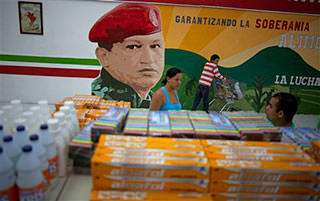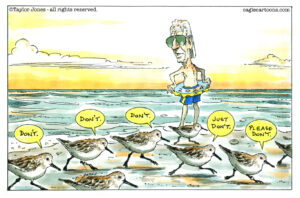Life After Hugo: Venezuela Votes (Update)
Polls have closed in Venezuela's presidential election, which pitted a top lieutenant of the late Hugo Chavez against a veteran Chavez opponent who promised to take the country in a different direction.
Update:AP reports
that Chavez successor Nicolas Maduro won a small majority of 1.6 percent with most of the votes counted and his challenger is calling for a recount. Original story continues below.
***
Polls have closed in Venezuela’s presidential election, which pitted a top lieutenant of the late Hugo Chavez against a veteran Chavez opponent who promised to take the country in a different direction.
President Nicolas Maduro, who took over for Chavez when the socialist reformer died in March, is expected to win, although his lead in the polls dropped sharply, according to The Associated Press.
His opponent, Henrique Capriles, is the governor of the state of Miranda and lost an election to Chavez in October.
Although Chavez is dead, his spirit loomed large over this election, as his governance was defended and attacked by the two candidates. Chavez, who used Venezuela’s oil wealth to fund social programs and advance his foreign policy agenda, chose Maduro as his successor, but so far the former labor leader doesn’t inspire the same love and hostility as his predecessor.
We don’t yet know what direction Venezuelans will choose, but we do know that even in death, Hugo Chavez remains the country’s most important political figure.
— Posted by Peter Z. Scheer.
Your support matters…Independent journalism is under threat and overshadowed by heavily funded mainstream media.
You can help level the playing field. Become a member.
Your tax-deductible contribution keeps us digging beneath the headlines to give you thought-provoking, investigative reporting and analysis that unearths what's really happening- without compromise.
Give today to support our courageous, independent journalists.






You need to be a supporter to comment.
There are currently no responses to this article.
Be the first to respond.